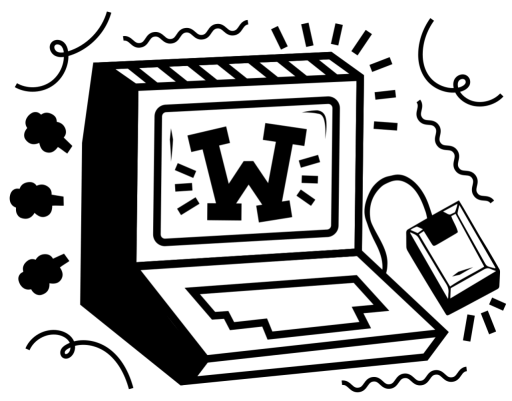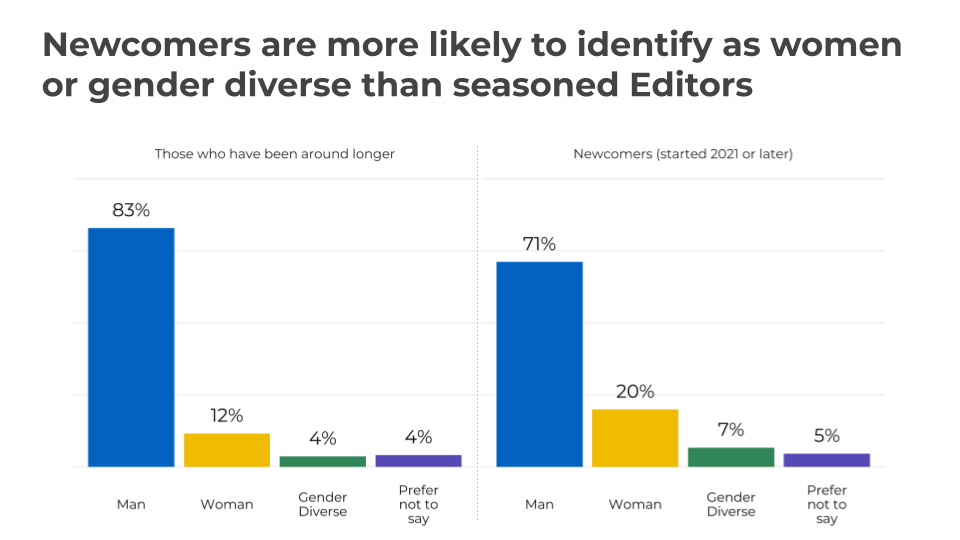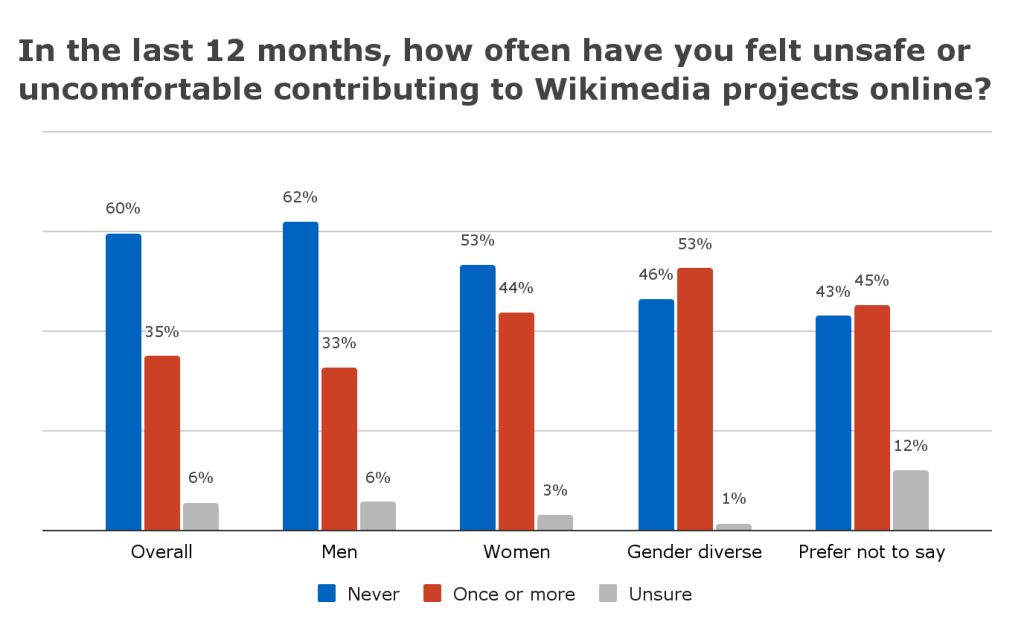
Measuring knowledge gaps through representative survey data of active editors
This month, we published the 2023 Community Insights Report on metawiki.
This report uses data from the 2022 Community Insights survey, which collected responses from a representative random sample of active editors across Wikimedia projects from June through September 2022. Some of the goals of the Community Insights survey are to gather estimates about the demographics of contributors to understand whether we are progressing towards goals such as the 2030 Strategic Direction’s aim towards Knowledge Equity, and to understand how users across roles, identities, and the globe experience contributing on-wiki.
In introducing the 2023 report, we’ll focus on Knowledge Equity, Knowledge Gaps, and how the Community Insights survey helps us to think about and measure aspects of these concepts.
What is Knowledge Equity?
Knowledge Equity is the concept the Wikimedia Foundation uses to talk about the structural inequalities which exist in the world and how they present within and reflect onto our digital ecosystem of free knowledge. If our aim is to have encyclopedias that reflect the sum of all knowledge, where anyone who shares in our vision will be able to join us, knowledge equity is a goal to strive to counteract those inequalities to “ensure a just representation of knowledge and people in the Wikimedia movement.”
To understand whether we’re moving towards knowledge equity, we must first identify and measure the presence of Knowledge Gaps, i.e., the disparities in representation of specific groups of readers, contributors, or content topics in Wikimedia spaces. Using gender as an example, where about 50% of the world is made up of women, knowledge gaps can be applied to
- content, where we estimate that around 80% of articles about people on large Wikipedias are about men;
- readership, where we estimate 72% of pageviews are generated by men; and
- contributors, where we estimate that 80% of active editors self-identify as men based on the Community Insights data.
These data points reflect the inequities of the world, from a history of knowledge perspective on who is deemed important enough to be represented in the historical record and in which ways, to a time-use perspective on who has the time to devote to reading, writing and editing the sum of all knowledge. But they also give us something to aspire to – by knowing a little about ourselves through data, we can start to ask whether and how we can create an environment that can counteract or circumvent these global inequalities and nourish a sustainable movement where anyone can join us – and stick around.
What can the data tell us?
As you read over the 2023 Report, we invite you to think about the intersections of differences in on-wiki experience across demographics and roles, and how that shapes our ability to reach knowledge equity as a Movement.
To get us started, we offer an interpretation of gender and on-wiki experience.
While women are still markedly underrepresented in our Movement, newcomers are substantially more likely to identify as women and with a trans or non-binary gender identity than contributors who have been around longer.

Active editors who engaged in organizing activities were likewise more likely to identify as women (approximately 30%) compared to those in other editor roles, underlining that we need to look across data to understand where and how women are engaged in our Movement. Not doing so risks reinforcing gender stereotypes and minimizing the contributions and impactful work of women in our ecosystem.
However, women, gender diverse people, and those who preferred not to identify their gender were overall more likely to indicate they’ve felt unsafe or uncomfortable contributing on-wiki in the 12 months preceding the survey. Women were also more likely to respond that they have been harassed in a Wikimedia space compared to those who did not identify as women.
While reaching gender parity can be a long-term aspiration, understanding differences of experience across gender identities today can help us to think about how to make Wikimedia spaces more welcoming and accessible for everyone. This brings an opportunity to ensure that the diverse newcomers who join our Movement stay around and continue to share free knowledge for generations to come.
What’s next?
In 2022, we shortened the Community Insights survey to reduce the burden on our respondents while retaining the key questions which we have tracked over time to identify contributor knowledge gaps and measure community health across roles and wiki projects.
This year, aim to continue improving the survey experience based on respondent feedback and increase its impact by including the Community Insights data and results in other tools or decision making processes. For example, we expect that in 2024 the gender of contributors in the Knowledge Gap Index will be measured based on the Community Insights survey. We also expect to utilize the data and insights from this survey to support WMF in developing a metric for measuring contributors’ health, in line with WMF’s annual plan goals.
Our goal is to distribute the next Community Insights survey in March 2024.
Reach out to us on our talk page or email us privately at surveys@wikimedia.org for any questions, comments, or feedback.

Can you help us translate this article?
In order for this article to reach as many people as possible we would like your help. Can you translate this article to get the message out?
Start translation
